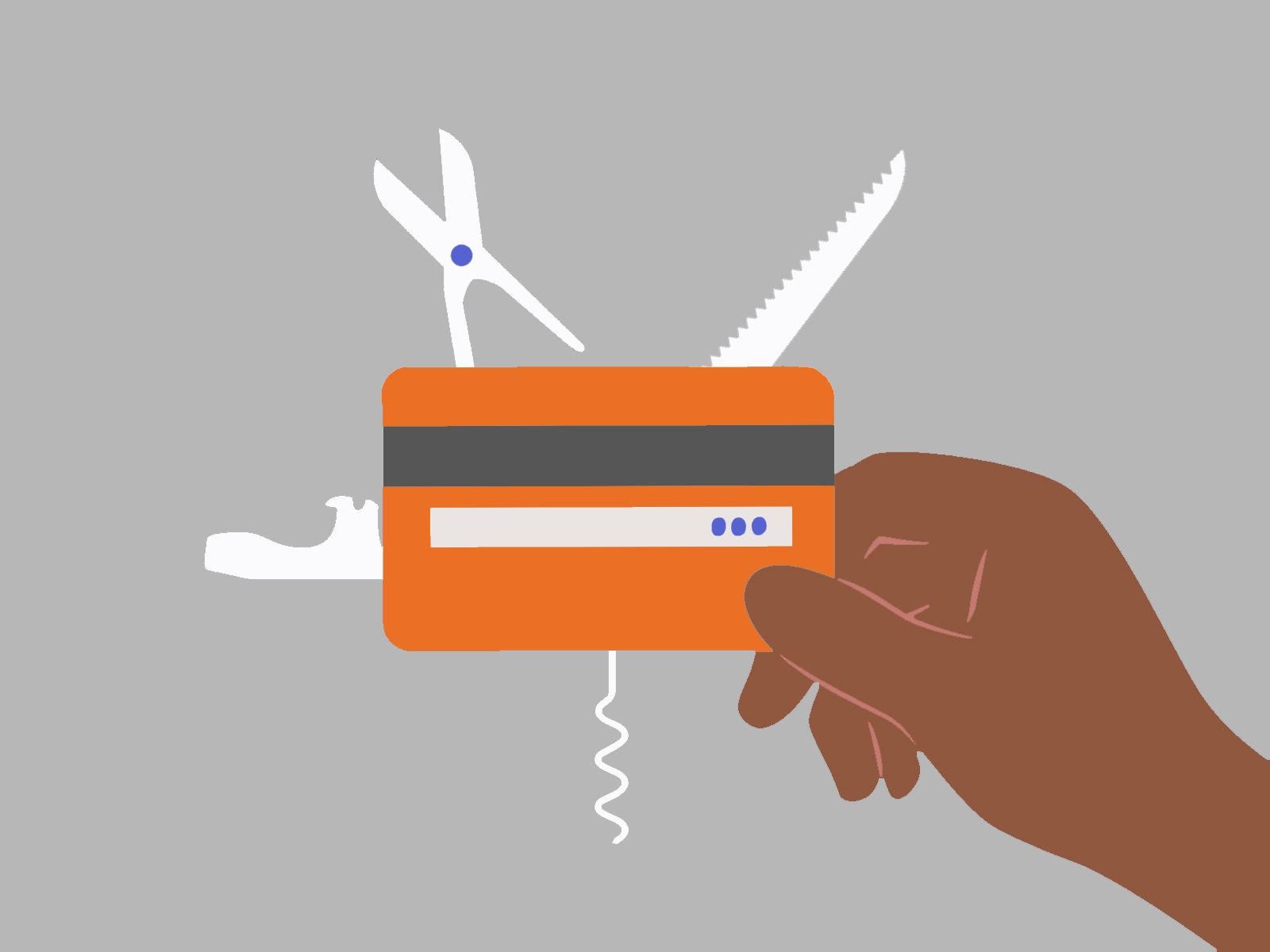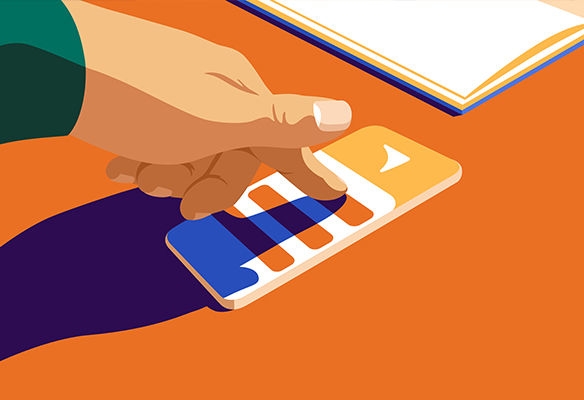Wipe out money anxiety with a financial self-care routine
Whether it’s embracing YouTube workouts, “SkinTok” routines or meditation apps, Canadians are prioritizing their mental and physical well-being more than ever. However, one aspect of self-care is often overlooked: financial fitness. Building your financial literacy is more important than ever with the abundant information and advice swirling around online.
“Financial self-care is a holistic approach to managing your money,” says Alyssa Davies, a personal finance writer behind @MixedUpMoney and the Money Feels podcast.
“It means ensuring that your financial goals and plans account for your mental health, your long-term self, and your overall needs. It’s about creating a balanced relationship with your finances so you’re surviving and thriving. This involves being mindful of how your financial decisions impact your well-being, planning for the future, and ensuring your financial habits support a healthy, fulfilling life.”
Integrating financial wellness into your routine can help you achieve long-term financial security. This is especially true for younger Canadians juggling student loans, sky-high housing costs, and low starting salaries. In this article, Davies and two other financial influencers share some financial self-care tips that can lead to big wins for your wallet and well-being.
1. Set your money intentions
Instead of setting random financial targets and goals — like “buy a house” or “start a business” — think about what these goals actually mean to you. Align them with your core values — like “security,” “independence,” “flexibility,” or “generosity” — and consider the deeper purpose behind these goals.
Defining your money intentions is all about creating a meaningful and mindful approach to your finances that reflects your true values and aspirations.
“For goal setting, try to imagine your future self in five, 10 or 20 years from now,” said fee-only financial planner Robb Engen, the blogger behind Boomer & Echo. “Where do you live? How do you spend your time and money? Who do you surround yourself with? Think about what it would take to get you there and set up an automated saving system to fund those goals.”
Engen breaks down how to get started:
1. Write down a list of goals, objectives and dreams.
2. Come back to the list another day and try to double it.
3. Next, break down the list into short-term, medium-term and long-term goals, and decide which ones to prioritize.
“A good place to start is with the ones that get you really excited,” said Engen.

Keep a money journal
Journaling about your money can help, too. While budgeting apps track your spending, journaling lets you explore your uncensored feelings, thoughts and attitudes about money. You can also think about how possible “money scripts” or financial trauma could be holding you back from pursuing your dreams. Overall, this exercise can change your money mindset and help you pinpoint what you truly value in life.
Give your past purchases a second thought
“If you want to discover what you value financially, look back at your recent purchases,” said Davies. “Highlight the expenses that brought you joy and those that did the opposite. What common themes do you notice? Do purchases that involve adventure or security mean a lot to you? Which values don’t seem as important? Understanding the type of purchases you make and how they make you feel is a fantastic way to determine whether your financial goals align with what’s truly important to you.”
But don't stop there
Just remember: what matters today will evolve, so plan to regularly revisit and adjust your goals to match your age and stage in life.
“Financial goals are constantly changing depending on your situation,” said finance and travel expert Barry Choi. “My goals include ensuring my daughter’s RESP is funded and regularly contributing to our TFSAs and RRSPs. But my wife and I have regular conversations about our priorities. We’re always analyzing our goals, as they constantly change.”
2. Set boundaries
Just like setting boundaries to achieve a work-life balance, decide on some rules for how you handle your finances. Generally, it comes down to being mindful of your spending, sticking to a budget, and making choices that align with your goals and values.
“Setting financial boundaries starts with a budget,” said Choi. “What truly made a difference for me was assigning money to what mattered most to me — whether it was saving for retirement, vacations or anything else. With any leftover funds, I could spend without feeling guilty, and that changed things for me.”
Overall, setting up a few simple rules and limits can help you manage your money like a boss — while still making space for fun spending.
“Focus on spending within your limits, but don’t cut out everything you love,” said Davies. “By being conscious about our spending, we can enjoy the things we love while still maintaining financial stability.”
Automate your savings
“If you have a hard time saying no to spending, I’d suggest setting up a rules-based system,” said Engen. “Automatically contribute a percentage of your income (say 5-10%) to savings, and allocate a percentage of your income for guilt-free spending. You could put that money on a prepaid card so that once it runs out, that's it — no more spending for that month.”
Putting your savings or investment contributions on autopilot helps prioritize “future you.” Setting financial boundaries is not all doom and gloom, either. As Engen says, planning for future spending can get you excited about what’s ahead.
“I like to map out our family’s spending and savings goals an entire year ahead of time,” said Engen. “That way, we can assign a job to every dollar of income to make sure we can fund everything we want to do without going over budget. That includes treating our savings contributions as a fixed bill payment—payable to our future selves. Then we automate it to hit our savings targets.”
READ MORE: Pro budgeting tips from TikTok influencer Rimi
3. Create a financial wellness routine
Just as you brush your teeth or go for a morning run, getting into the groove of money management can help you stay financially fit. By making time to review your finances regularly, you can track spending, catch issues early, make adjustments and stay in control.
“I do monthly check-ins on my budget and finances, and I dial back if needed,” said Davies. “I also give myself just one thing to focus on each month so I don’t get overwhelmed.”
“I set up our yearly spending and savings plan at the start of the year, automate what I can, and then review and update the spreadsheet monthly with our actual spending,” said Engen. “After a few months, we can identify patterns, like consistently overspending on groceries, allowing us to adjust our spending accordingly, rather than just hoping costs will magically decrease.”
Don't let money anxiety or busyness sidetrack you
Many people feel stressed and anxious when dealing with their finances, especially when checking their bank accounts or credit card statements. But if you do it regularly, it won’t seem so daunting. It may also help ward off money worries, which studies show can cause psychological distress and other health issues.
“It can be tough to keep up with your finances when life gets busy, particularly if you've had a ‘spendier’ month and don’t want to look at the progress you might have undone,” said Engen.
“Again, this is why we need some simple rules to guide us. Like, every Saturday, you’ll check your spending and update your budget — and you do this without fail. I also preach simplicity. One or two bank accounts, one or two credit cards, one investment platform. It’s easy to get overwhelmed when your money is all over the place.”
Using a tool like Tangerine Money Rules can help you set up ways to move, manage and save your money without thinking about it. For instance, you could set up a Money Rule that transfers money to your Savings Account every time you buy a coffee.
Another feature is Left to Spend—a smart way to track your spending. You can easily see where your money is going and keep track of how much you have remaining to spend each month, making it easier to keep tabs on your budget without overwhelming yourself. Tangerine Clients can also easily check their credit score, which gives a snapshot of how your financial habits might be affecting your overall financial wellness.
“I check my bills every month, especially my credit card statements, to catch any mistakes or unexpected charges,” said Choi.
4. Invest in your financial education
In the era of online misinformation, knowing the money basics helps you separate fact from fiction. Sharpening your financial literacy skills can help protect you from falling for scams or making risky money decisions based on questionable online content.
“Finding reliable financial information online has become increasingly challenging,” said Choi. “I place more trust in official government websites, newspaper sites and information provided by banks and other authoritative sources.”
You don’t need to pursue an MBA to boost your FinLit either: for instance, try learning one new money concept each week, like budgeting, saving each month, managing debt, compound interest and the pros and cons of different savings vehicles (like GICs). Other topics to tackle could include handling taxes, retirement planning or even fluency in financial jargon.
“Investing in financial literacy is one of the best gifts I ever gave myself,” said Davies. “The second you step back and approach finance in small doses, you’ll quickly realize that it’s not nearly as scary as it sounds. It mostly involves building good habits to grow wealth and decrease debt. If you can find a routine that works for you, you’ll be so much better off.”
You can even make learning fun by hosting a “money party,” whereby you and your friends gather weekly to share tips and insights. Bit by bit, you can gain the skills and confidence needed to make smart money decisions, setting yourself up for long-term financial success.
READ MORE: Saving and investing strategies for millennials and Gen Z
5. Treat yourself
Incorporating treats into your financial self-care routine is as important as budgeting and saving. Whether booking a pedicure or grabbing your favourite latte, these little luxuries can provide a mood boost on your financial journey. It’s also important to appreciate the small victories along the way, like paying off a credit card or sticking to your budget. Celebrating these wins — or “inchstones" — helps you stay motivated and feel good about your financial progress.
“Treats should be in your budget!” said Davies. “So much of our mental wellbeing is attached to these small glimmers throughout the week, and I would hate for anyone to miss out on those moments that make life feel less dull. Choose one treat that you love and give yourself permission to spend. You deserve joy in your budget.”
Move your pay and you could earn $2501
Open a no monthly fee Chequing Account and move your pay.










